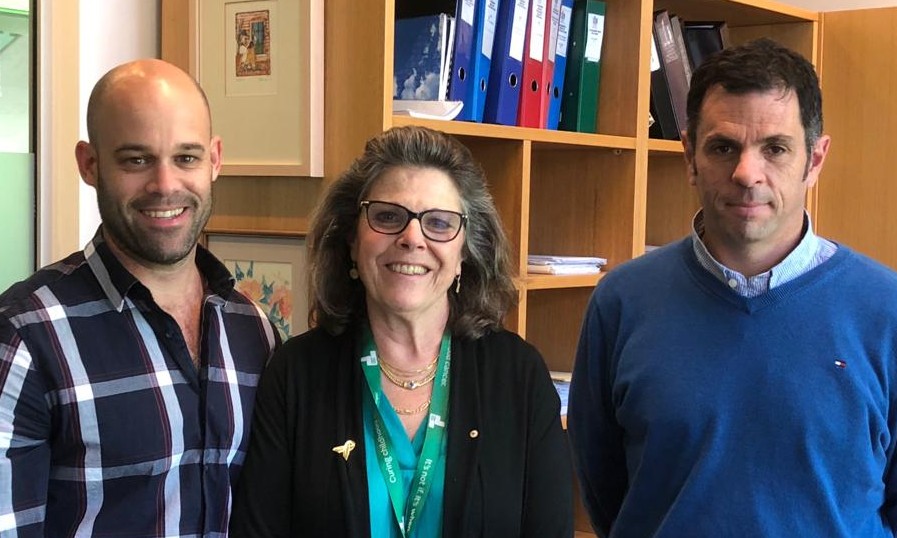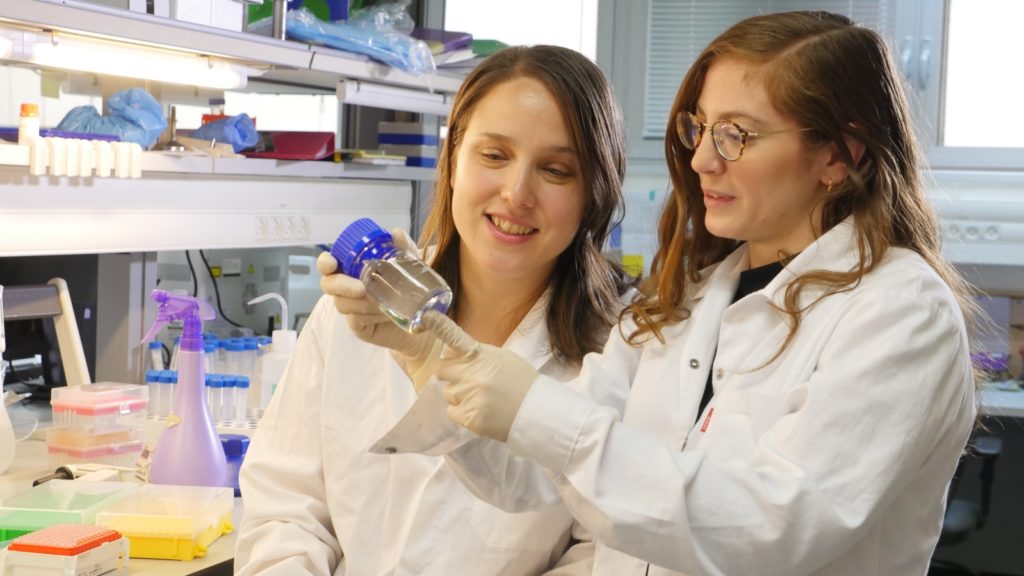As countries worldwide take unprecedented steps to protect their populations from the Corona-virus, an equally urgent race against time involves researchers working to halt the outbreak.
At the Technion, over twenty research and development teams are aggressively seeking solutions in areas that include rapid diagnostic tools, isolation technologies to keep both patients and providers safe, treatments for those already affected by the virus and, perhaps most importantly, potential vaccines to prevent further spread of the virus.
The Technion has a proud history of medical innovations ranging from breakthrough drugs such as; Azilect (for Parkinson’s disease); the Nobel winning discovery of the ubiquitin system that continues to inform new cancer treatments; and technologies such as Novocure that uses electrical fields to kill tumors. These achievements arose from years of careful research.
The need today is for greatly accelerated scientific understanding of COVID-19 to enable developments from the laboratory bench to the workface to proceed as rapidly as possible.
We cannot all be scientists but we can support them.
The Technion is launching a Global COVID-19 Emergency Research Fund to ensure that the financial resources required for these efforts to move forward are available to its faculty and investigators as soon as possible.
Technion’s COVID-19 priority projects
Diagnostics
- Prof. Hossam Haick, Wolfson Faculty of Chemical Engineering: Developing a diagnostic test for pre-symptomatic coronavirus carriers. Research focuses on two approaches: diagnosing the virus with a breath test, and monitoring the virus with an inexpensive patch adhered to the arm or chest.
- Prof. Roy Kishony, Faculty of Biology: Pooling method for accelerated testing of COVID-19.
- Prof. Amit Meller, Faculty of Biomedical Engineering: Identifying and quantifying viral RNA using nanopores.
- Prof. Moran Bercovici, Faculty of Mechanical Engineering: Innovative and rapid diagnostic test using blood and saliva.
Vaccine Development
- Prof. Avi Schroeder, Wolfson Faculty of Chemical Engineering: Developing a vaccine for coronavirus based on a vaccine for shrimps, he invented at Technion – and is being commercialized by his Technion start-up ViAqua Therapeutics.
- Prof. Zaid Abassi and Prof. Oded Lewinson, Rappaport Faculty of Medicine: Prof. Lewinson is developing recombinant ACE-2 receptors in collaboration with Prof. Ofer Mandelboim of The Hebrew University of Jerusalem. The aim is to develop antibodies for ACE-2 receptors on which the coronavirus attaches itself to the host organism’s cells.
Therapeutics
- Prof. Josué Sznitman, Faculty of Biomedical Engineering: Innovative technology for delivering drugs to the lungs. Especially suitable for treating acute respiratory distress syndrome (ARDS), which is the principal cause of death among coronavirus patients.
- Prof. Roee Amit, Faculty of Biotechnology and Food Engineering: Developing an ointment to treat coronavirus infections.
- Prof. Marcelle Machluf, Faculty of Biotechnology and Food Engineering: Trapping the coronavirus using the existing nano-ghost technology developed in her lab.
- Prof. Avi Schroeder, Wolfson Faculty of Chemical Engineering: Developing a targeted drug for treating acute respiratory distress syndrome (ARDS), based on exisitng drug delivery methods.
Aids for Medical Teams
- Prof. Eyal Zussman, Faculty of Mechanical Engineering: Developing filters and coatings using nanometric fibers.
- Prof. Yotam Bar-On, Rappaport Faculty of Medicine: Virologist specializing in COVID-19 – expert advice to medical teams.
- Prof. Shai Shen-Orr, Rappaport Faculty of Medicine: Identifying infected individuals based on their immune response; monitoring disease progression and complications in infected individuals; triage for the aged population and predict those with higher risk of complications or death. Additional collaboration is to develop rapid cell-based diagnostics for infections.
- Prof. Shady Farah, Wolfson Faculty of Chemical Engineering: Developing anti-viral disinfectants.
- Prof. Shie Mannor, Viterbi Faculty of Electrical Engineering: Artificial Intelligence research to evaluate the patients’ condition and the progress of the disease, in collaboration with Prof. Uri Shalit, Davidson Faculty of Industrial Engineering and Management and Prof. Joachim Behar, Faculty of Biomedical Engineering.
- Prof. Alex Bronstein, Faculty of Computer Science is developing ultrasound for lung imaging. The researchers are adapting inexpensive ultrasound sensors in order to identify infections in the lungs caused by the coronavirus. Prof. Ron Kimmel, Faculty of Computer Science and Doron Shaked of General Electric are collaborating on this project.
Collaborative Projects with Rambam Health Care CampusIn addition, numerous innovative research projects are being carried out jointly by Technion researchers and medical staff from the Rambam Health Care Campus, under the leadership of Technion VP for External Relations and Resource Development Prof. Alon Wolf, Rambam Director-General Prof. Michael Halberthal and former Rambam Director-General Prof. Rafi Beyar:
- A robotic platform operated remotely by the medical staff to bring food and medicine to patients. The robots will have sensors to help monitor the patients’ pulse rate and blood oxygen level. FIRST robotics program alumni at the Reali School in Haifa are working on this project under the supervision of Prof. Gil Yudilevitch, Faculty of Aerospace Engineering.
- Prof. Ezri Tarazi, Faculty of Architecture and Town Planning: Design and produce novel protective equipment for medical personnel using 3D printing; establishing a national network of designers who will plan and produce products for use in the COVID-19 crisis.
- Prof. Reuven Katz, Prof. David Greenblatt, Prof. Rene Van-Hout, Faculty of Mechanical Engineering are developing a suction system to be placed above the patient’s head. The device will suck in any airborne droplets from the infected patient in order to protect the medical personnel. The spray will be collected into a chamber above where ultra-violet radiation will destroy any viruses.
- Prof. Ron Kimmel, Faculty of Computer Science is also working on a “clean room” concept to surround an individual patient.
#ScienceHeros, #StayCalmWeAreWorkingOnIt, #COVID-19


